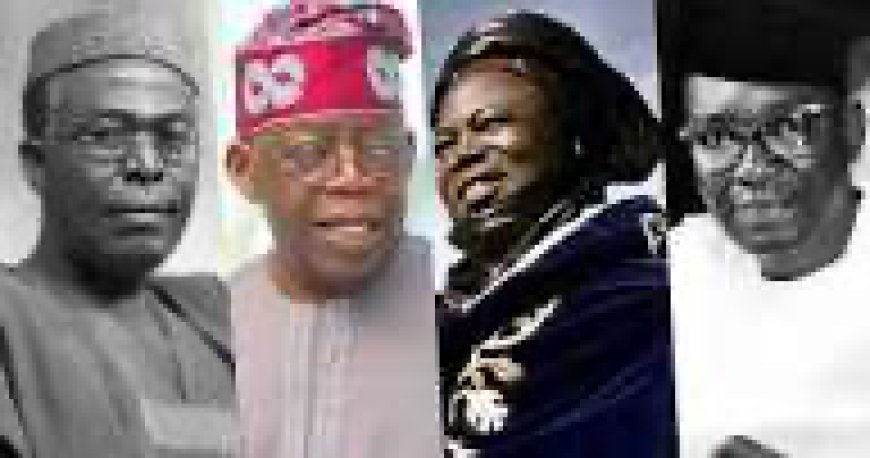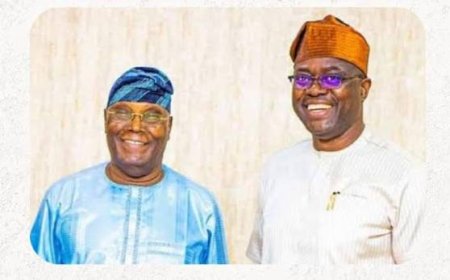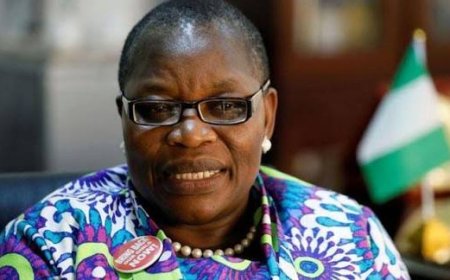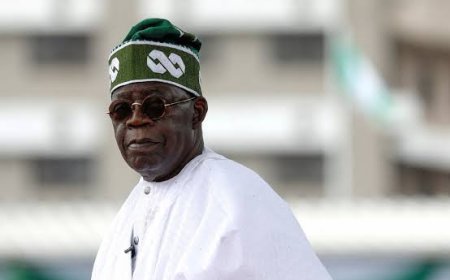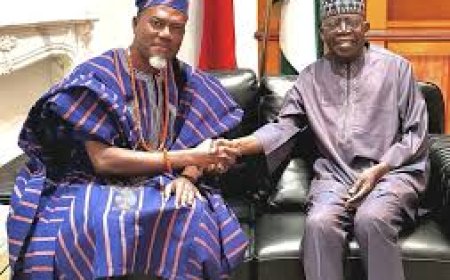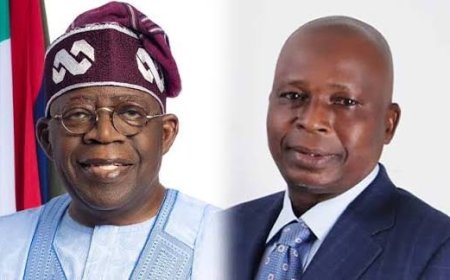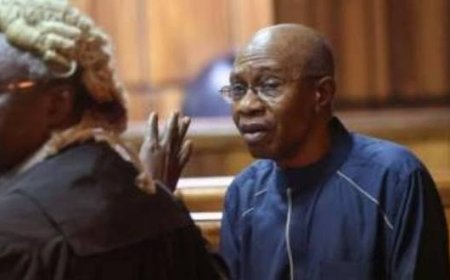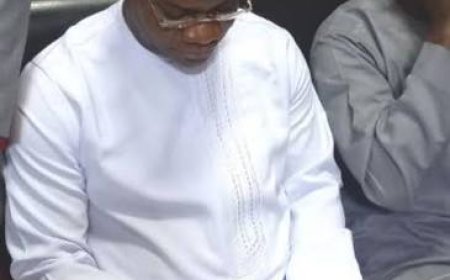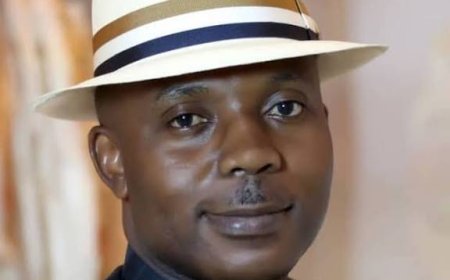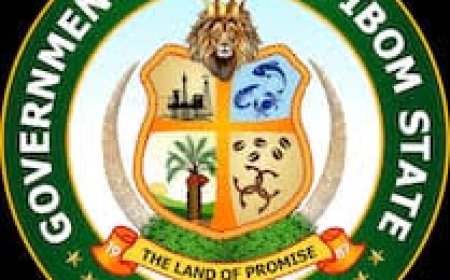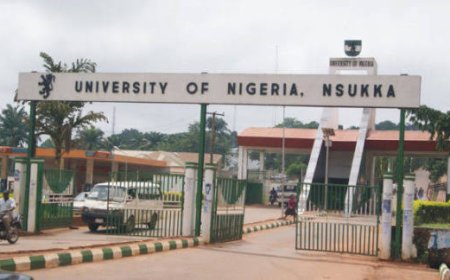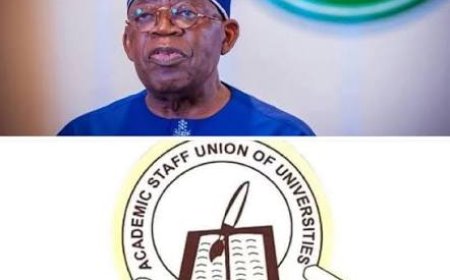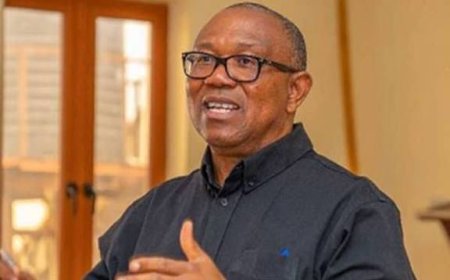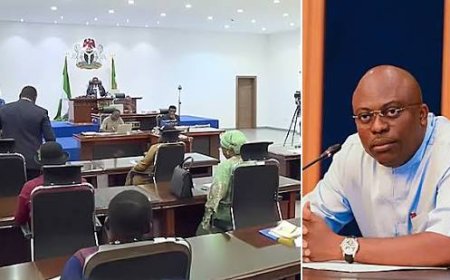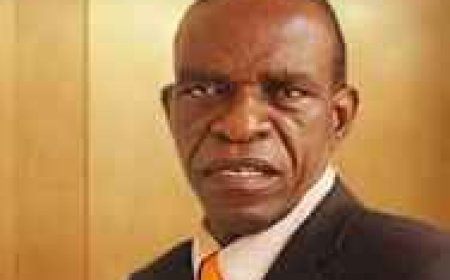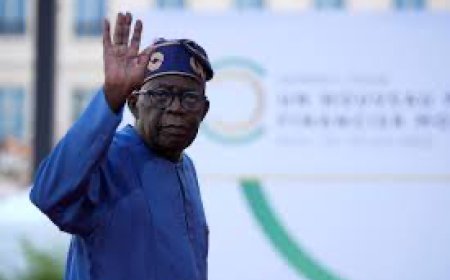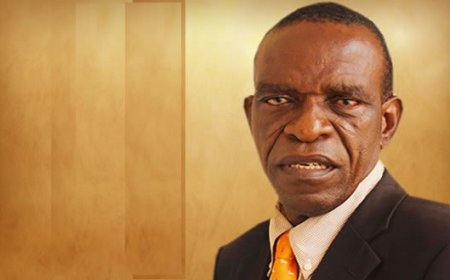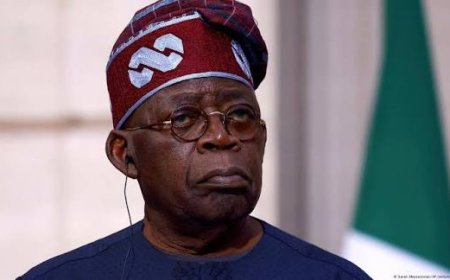Political Musing of Thursday October 2nd 2025
By Ike Abonyi
" _The death of democracy is not likely to be an assassination from ambush. It will be a slow extinction from apathy, indifference, and undernourishment."_ - Robert M. Hutchins.
If Scott Hahn, an American author and theologian, is correct in stating that “at the root of every misery is unfulfilled desire,” then the mood of Nigerians is crystal clear. As the nation observes its 65th Independence Anniversary, it’s apparent that widespread misery stems from unfulfilled aspirations. A graph illustrating Nigeria’s political trajectory from 1960 to today would undoubtedly reflect a nosedive.
October 1st, 2025, we marked Nigeria’s 65th birthday—a significant milestone. However, this period, packed with positive and negative experiences, leans overwhelmingly toward the negative. As a nation, our desires remain unfulfilled.
At age 65, a person is categorised as a senior citizen. If such an individual isn’t measuring up, various factors like upbringing, education, and environment are scrutinised. The same applies to countries. If a nation at 65 is struggling to find its footing on the global stage, it’s crucial to examine its foundational history.
Though Nigeria gained independence on October 1st, 1960, the foundations affecting its nationhood were laid much earlier, in 1914, when British colonial powers merged the Northern and Southern protectorates. The implications of that decision continue to resonate 111 years later.
Nigeria’s political evolution starkly illustrates its struggles. Initially led by credible and visionary figures like Dr Nnamdi Azikiwe and Abubakar Tafawa Balewa, the nation’s leadership has progressively declined to produce the quality of leaders we have today, led by Bola Tinubu. From Azikiwe to Tinubu, we’ve endured seventeen administrations, with fifteen leaders, comprising eight military and nine civilian rulers.
Notably, President Olusegun Obasanjo and late Muhammadu Buhari uniquely governed as both military heads and civilian presidents at different times. Generals Aguiyi Ironsi, Yakubu Gowon, Ibrahim Babangida, Sani Abacha, and Abdulsalami Abubakar were part of the military landscape, while Nnamdi Azikiwe, Tafawa Balewa, Shehu Shagari, Ernest Shonekan, Goodluck Jonathan, and Bola Tinubu represented civilian leadership—albeit with Shonekan's brief tenure as a military appointee.
Throughout its 65-year history, Nigeria has endured a brutal civil war lasting 30 months, claiming the lives of over three million citizens, along with numerous military coups that disrupted governance and claimed the lives of skilled military personnel.
Given Nigeria’s immense natural and human resources, its performance over the past 65 years is nothing short of disappointing, with notable exceptions in sports and entertainment. The greatest failures lie in the political and economic realms, where corruption, ethnic strife, and religious intolerance have stifled progress. Decadent and sybaritic leadership styles have perpetuated the country’s struggles. The lack of effective and inspiring political leadership is the crux of Nigeria's issues; every other challenge is intrinsically tied to this failure.
Even in light of its flawed 1914 foundation, the time for Nigeria to redefine its trajectory for advancement has long arrived, yet stagnation persists. The decline in leadership quality continues unabated.
The prevailing sentiment across political commentators, academics, and the public is that Nigeria has made alarmingly little progress over its 65 years of independence. This widespread perspective attributes ongoing challenges directly to a consistent failure of political leadership and a glaring absence of accountable, visionary governance since 1960.
Key arguments supporting this assertion spotlight several interconnected issues, chief among them being leadership Failure. The decline in the quality of political leaders at every level—from the Presidency to the National Parliament, down to State and Local Government Areas—is explicit. This degradation has fostered pervasive corruption within the system.
It's an undeniable fact that a major and persistent challenge is the stark inadequacy of leadership, hindering the nation’s potential and progress. Enough is enough; Nigeria must confront these issues head-on for a brighter future. Helping to fuel all the failures are deep-rooted ethnocentrism and a lack of National Cohesion.
Rather than douse it, successive leadership has often helped to exacerbate ethnic and religious divisions for political gain, hindering the formation of a strong, unified national identity.
Ditto Tribalism and Nepotism. As has been made more pronounced by the Tinubu regime, Leadership selection and resource distribution are often influenced by ethnic, regional, or religious affiliations rather than merit and competence.
The general effects of all these are the rise of various internal security challenges from insurgencies, banditry, farmer-herder clashes, to Kidnapping, all of which are often seen as a symptom of a weak state and a leadership failure to effectively manage diversity and ensure citizens' safety.
Varying authorities are in agreement that for Nigeria to realise its potential, there needs to be a paradigm shift in leadership—one that is visionary, ethical, and transformational. One that prioritises the four Cs: competence, capacity, compassion and character. This will require a focus on competence and meritocracy in the leadership selection process, the strengthening of democratic institutions and the rule of law. It also entails a renewed commitment to a social contract between the government and the citizens, ensuring accountability and inclusive development.
Overall, Nigeria's leadership challenges require a multifaceted approach that addresses the root causes of the problems and promotes inclusive governance and nation-building.
Deliberate efforts must be made to tackle the obvious breakdown of trust among different groups, violent conflicts, and identity politics, which have contributed to the challenges facing Nigeria. There must be a pragmatic approach to the issue of Corruption that has become a significant obstacle to progress, and has led to a decline in citizen welfare and a perceived feeling of marginalisation among sections of the populace.
The failure to build and popularise a broad national leadership consensus has hindered Nigeria's progress. And has bred extreme parochial leadership.
The administration of public affairs has been copiously undermined by these extreme parochialisms, which have also negatively impacted nation-building.
After 65 years of epileptic governance, to ensure a better Nigeria going forward a collaborative and historically informed approach should be put in place to develop effective policy options for national unity and progress.
Nation-building is an ongoing process that requires continuous effort and adaptation to changing dynamics; therefore, managing diversity and promoting inclusivity are crucial for Nigeria's progress.
Unfortunately, the picture does not look rosy with the kind of nepotism on display and clear insensitivity to the plight of the poor, whose suffering and hardship are reaching a worrisome dimension.
But that notwithstanding, Turkish-American Economists, Daron Acemoglu, writing on ‘Why Nations Fail’, wouldn’t have put it any better: "Poor countries are poor because those who have power make choices that create poverty. They get it wrong not by mistake or ignorance but on purpose."
And former Algerian foreign Minister, Lakhadar Brahimi underscored it, saying, "I think a failed state is the responsibility of the people who have made that state fail, and those are generally the people of that country."
